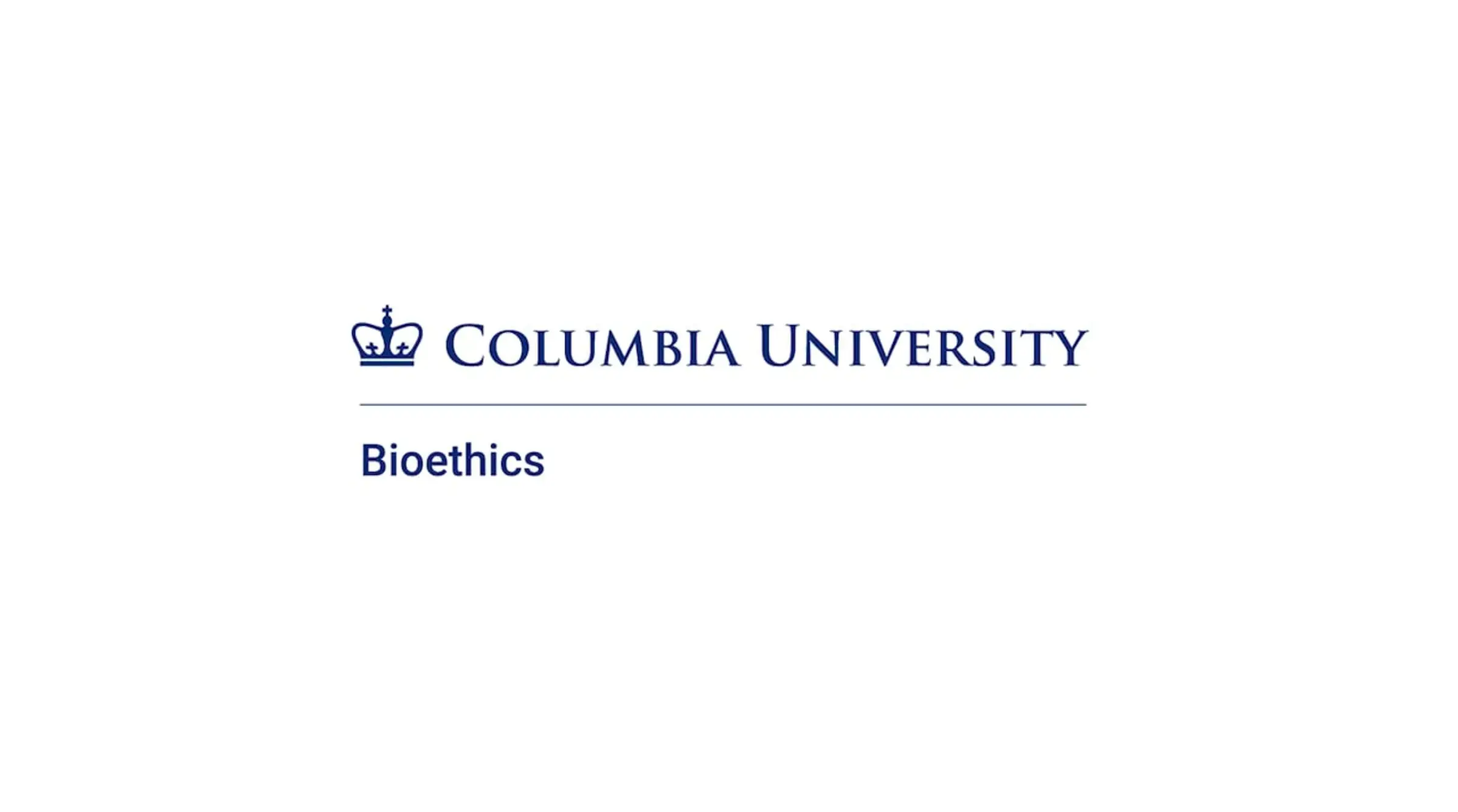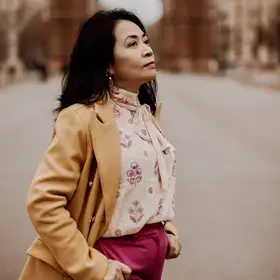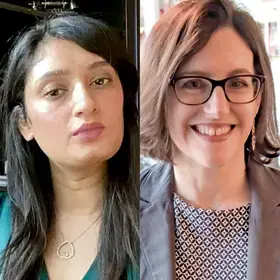Karla Childers, ’21SPS, Bioethics, is the Senior Director of Strategic Projects in the Office of the Chief Medical Officer at Johnson & Johnson. As an industry influencer in the field of Bioethics, Karla’s goal is to do the most good for patients and consumers everywhere. We spoke with Karla about her time in the Bioethics program, her role at Johnson & Johnson, and working in Bioethics during a pandemic.
What led you to pursue Columbia’s M.S. in Bioethics?
I'm a bit of a serial student! I promised my husband I wouldn't go back to school after I finished my master’s in health law, but then I got involved in Columbia's Executive Education program and got exposed to the Bioethics program through Professors Klitzman and Hoffman. And at that time, my day job was starting to take on a bit more of a Bioethics focus. I was drawn to the program to try to build some confidence in my capabilities in the subject matter. So, with my husband’s support, I started the program, and I’m thrilled with the decision I made.
How do you apply what you’re learning in the program to your work?
In terms of what I’ve experienced in the program, I found that I’ve been able to immediately take what I was learning in my coursework and apply it to my day-to-day role at the company. I have been leading and working with teams on Bioethics consultations, and even in the initial classes, like Foundations of Bioethics, I’ve been thinking through different ethical frameworks and approaches, and applying the different lessons I’ve been learning. I have heard from my colleagues that I’m more confident, whether it’s in the robustness of the summaries I’m writing up or when leading discussions. I certainly don’t know all the answers, and I don’t think anybody in Bioethics ever will have all the answers, but gaining that confidence from the program really made a difference in my ability to lead the groups and teams at work.
Tell us about your role at Johnson & Johnson. What is a typical day like?
On a day-to-day basis, I spend a lot of time talking with people. I spend a lot of time listening. I am often the first person that people will come to when they have a potential Bioethics question that they think may need to go to our internal committee or might need some input. So, I do a lot of what we call “curbside consultations,” where I’ll just have a conversation. I think a lot of the time, people just want to explore what they’re feeling and understand if we already have policies and positions on it, which is oftentimes the case. I just try to understand their perspective, so I spend a lot of time in Zoom meetings these days. Another big part of what I do is thinking through the literature that’s already out there, what I have learned through the course of my education, and how I can bring that back and help my colleagues. I would say most of the time I spend actively listening, and really trying to understand the implications of the choices people are trying to make.
Did your role change over the past year since the pandemic started?
Over the course of the pandemic, I think what’s been interesting is that the role hasn’t really changed. It’s just gotten a lot busier. I think one of the interesting things about the pandemic and the public health emergency has been how focused everyone in the media has been on Bioethics questions, so for me, it’s been exciting (if I can use that word about the pandemic, which I’ve spent mostly in my home office).
But to see people really engage in this topic has been exciting. We’re fortunate at Johnson & Johnson to have a robust foundation for decision-making in Our Credo. Building on that, we challenge ourselves to think about the different ethical frameworks that might be needed to help address difficult questions. Something that comes to mind from the past year is the ethical framework we’ve shared on JNJ.com about the allocation of scarce resources. That’s been such a challenging topic over the past year. How do we make these difficult decisions? How do we do what’s best for patients, for people? So, the role hasn’t really changed. I just think there’s been a heightened awareness of how important it is to think about Bioethics in medicine. I’ve been very grateful to have been taking my courses at this time because there have been some great opportunities to think these things through in a very real, practical way.
What was the most challenging part of the past year for you, whether that was at work or in the program?
One of the most challenging - and gratifying - things has been my friends, family, and colleagues gaining a better understanding of the role I play because of the heightened awareness of Bioethics right now. Not only has the volume of questions and issues increased, but I’ve felt a heightened responsibility to hold myself to a high standard as I think about what is the right way to do things. How do I model what I think is ethical behavior in these difficult issues? It can be overwhelming and exhausting at times to feel like you are always leading with your moral compass, and challenging yourself to do the right thing as a role model for others. Others might be looking to me for guidance, how I’m making decisions. It’s been a privilege to bear that burden as an opportunity to share with others what ethicists do think about when we make tough decisions and how those choices can impact others. I would say the most difficult thing has just been finding the reserve, the resolve, and the energy to keep that up daily and lean into the work I’ve been doing. I’ve been so grateful for the opportunities that have touched our workforce and touched other parts of the company. It’s been challenging to wear that mantle of Bioethics every day and share it with others, but it’s been really rewarding, too.
What has been your favorite part of your Columbia experience, so far? Are there any particular classes you really enjoyed?
Some of the most important and thrilling moments of being part of the Columbia community have been not just reading about what luminaries and influencers and thinkers have to say about issues, but actually hearing from them. I’ve been so lucky to hear directly from people that I’ve read about and hold in such high esteem. To actually have that person sit in front of me and share their experience, and be able to ask them questions was amazing. I’ve been impressed with the caliber of the faculty. Even the students in my classes challenge one another and form such an inspirational community. I really want to do my best, and show up, and be engaged. My favorite part of the experience has been the faculty and the exposure to some tremendous thinkers and influencers in the field of Bioethics.
Perhaps one of my favorite classes was Journalism in Bioethics with Harriet Washington. She transformed the way I thought about how we communicate important information to the media, and what we can do as we consume information and share it with others.
Learn more about the Bioethics program.



